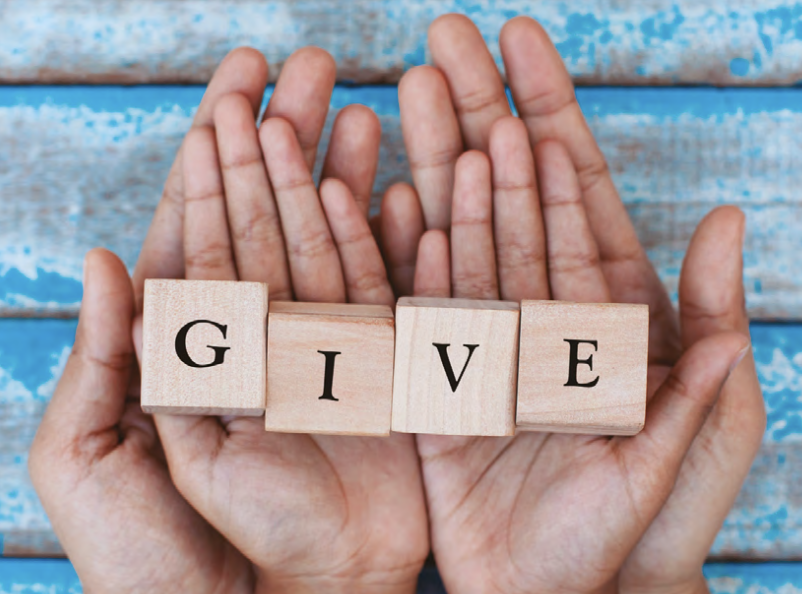You may have money that you don’t know about waiting for you somewhere
By Olev Edur
Is it possible that you have money you’ve simply forgotten about? Many Canadians, including a substantial number of retirees, are missing out on billions of dollars in unclaimed cash and financial assets that are being held by financial institutions and government agencies pending claims by their rightful owners. Some of that wealth might be yours for the asking.
As of July 2023, for example, Canada Revenue Agency (CRA) was sitting on $1.5 billion worth of uncashed cheques (these cheques never stale-date and can’t be voided or replaced without the owner’s permission), despite its efforts to have the rightful owners step forward and claim them. To that end, CRA launched in 2020 an initiative whereby taxpayers can see any cheques that had been uncashed for six months or more simply by accessing their online CRA My Account and selecting the “uncashed cheques” option on the Overview page.
CRA spokesperson Kim Thiffault says that since this initiative was launched, approximately three million uncashed cheques worth some $1.2 billion have been redeemed, but that hasn’t entirely solved the problem. “Despite the number of uncashed cheques that have been redeemed over the past three years, the numbers continue to grow,” Thiffault says.
In further efforts between August and November 2022, CRA sent some 50,000 e-notifications to recipients of the Canadian child tax benefit and related provincial/territorial programs, the GST/HST credit, and the Alberta Energy Tax Refund, resulting in about $6 million in uncashed cheques being claimed. Then in August 2023, CRA began sending 2,500 letters per month to taxpayers who had used the Community Volunteer Income Tax Program (CVITP provides free tax-return preparation services to qualifying low-income tax filers) and in November 2023 resumed its e-notification campaign.
If you do find that some of this unclaimed CRA money belongs to you, though, claiming it requires more than a mere verbal request: you must obtain and complete Form PWGSC–Undertaking and Indemnity. “This form can be accessed through My Account or by calling CRA’s general-inquiries line,” Thiffault says. “The form requires your payment information, name, address, and signature and the name, address, and signature of a witness.” She adds that those who don’t have access to a computer or My Account can call CRA’s general-inquiries line, at 1-800-959-8281, to find out if some of that money belongs to them and, if so, ask for a copy of Form PWGSC.
Forgotten Bank Accounts
In a similar vein, the Bank of Canada (BoC) Unclaimed Properties Office (UPO) is trying to connect individual owners with the roughly 2.75 million properties worth almost $1.16 billion that have been forwarded to them over the years by federally regulated banks and trust companies. These assets include not only chequing and savings accounts but also Guaranteed Investment Certificates, term deposits, positive credit-card balances, certified cheques, travellers’ cheques, and certain other financial instruments such as money orders and even Canada Savings Bonds.
As with CRA, however, the unclaimed numbers keep growing. “Federally regulated institutions have an obligation to send their 10-year-dormant accounts to the UPO every year, so the number of unclaimed properties and their values tend to increase year over year,” says Sean Gordon, spokesperson at the BoC in Ottawa, adding that the total number of properties is a quarter million higher than it was a year ago and their total value has risen by about $50 million.
As for determining whether any of these properties belong to you, the first step is to check on the BoC website’s UPO pages at unclaimedproperties.bankofcanada.ca. “You can search for properties by last name, first name, city, town, or property [such as bank account or document number],” Gordon says. “The search narrows the results, and the claimant then chooses the one they believe to be theirs and initiates an online claim. The UPO returns a Claim Form and Claim ID with instructions including proof of ownership requirements and whatever other supporting documents are required based on the type of claim initiated. The claimant uploads the required documents to the website, and then the UPO reviews, validates, approves, or rejects the claim.”
However, readers commenting on an August 17, 2022, National Post article by Christopher Nardi dealing with unclaimed funds generally suggested that making a successful claim can be easier said than done. “Waste of time,” one would-be claimant wrote. “Unless your signature has remained exactly the same, the Bank won’t release the money.”
To which Gordon replies: “While we strive to provide easy and accessible ways to search and claim forgotten money, the BoC also has the responsibility to safeguard people’s money and personal information while ensuring that the rightful person is claiming the rightful property. Personal identity verification is part of the proof of ownership, but it’s not always enough. Proof of entitlement to that property is also required.”
You (or your heirs) don’t have forever to reclaim any funds from the BoC belonging to you: properties under $1,000 unclaimed after 30 years in the UPO will revert to the Receiver General of Canada, while properties over $1,000 go after 100 years. The reclamation window for provincially held assets, however, is typically 10 years but in certain instances as little as three years.
Provincially Held Property
In addition to CRA and the BoC, four provinces have now created unclaimed-asset registries in an effort to clear their books of money languishing in provincially regulated financial institutions or government agencies—investments, insurance, and even outstanding wages or court settlements. Each of these registries offers free online-search capabilities. Making a claim, however, will depend on the specific rules for each, and there will probably be fees.
British Columbia
British Columbia established an unclaimed-funds registry in 2003, and since then the British Columbia Unclaimed Property Society (BC Unclaimed) has “reunited $21.6 million in unclaimed funds with the rightful owners and donated over $58 million to charity,” according to executive directory Sherry MacLennan. Still, BC Unclaimed remains in control of more than $190 million in idle assets.
The assets comprise not only cash but all types of financial assets that are required to be handed over by provincially regulated banks and credit unions as well as courts and other agencies. While the majority of these assets are worth a few hundred dollars, MacLennan notes that the single largest unclaimed account in BC is worth a whopping $1.9 million.
As for finding out if any of this largesse belongs to you, you can conduct a free search on the website page bcunclaimed.ca/search; if you find something that’s yours, you can make a claim at bcunclaimed.ca/claim.
Quebec
As of the end of July 2023, Revenu Québec’s registry had accumulated almost 440,000 unclaimed assets worth about $475 million in total. Unlike CRA, which holds only uncashed cheques, Revenu Québec’s unclaimed assets can also include unclaimed money deposited with provincially regulated financial institutions, including securities and other investments such as mutual funds, life insurance proceeds, and even inheritances. The majority of these assets (about 65 per cent) were valued at less than $500, but 222 were valued at more than $25,000.
Revenu Québec spokesperson Mylène Gagnon notes that during the 2022–2023 fiscal year, the registry dispensed about $25 million worth of previously unclaimed assets to their rightful owners. During the same period, however, some $75 million was turned over to the province’s Generations Fund after having remained unclaimed from Revenu Québec for a 10-year period. (The 10-year limit applies to assets worth less than $500; assets worth more than $500 may be kept indefinitely.)
For a more complete list of the types of assets, as well as for further details on how to go about searching and making a claim, go to the Revenu Québec website’s unclaimed-property information page at revenuquebec.ca/en/unclaimed-property/information. Finally, it’s worth noting that also unlike CRA, Revenu Québec charges fees for the recovery of assets (but not searches). These fees can range from a minimum $56.50 up to several thousand dollars, depending on the value of the asset and whether it needs to be liquidated to obtain a cash result.
Alberta
As of August 2023, this province’s Unclaimed Property Registry held about 355,000 assets worth close to $150 million. Of these, the vast majority (about 328,000) were valued at less than $1,000, but 420 were valued at more than $25,000; the single largest property on record was valued at $887,000. As with Revenu Québec, the types of assets in the Alberta registry cover a broad spectrum comprising uncashed cheques, unclaimed trusts, investments, escrow accounts and securities, and unclaimed insurance payments.
Also as with Revenu Québec, owners have up to 10 years to recover from the registry any assets belonging to them, and while searching is free, you may be required to pay an administration fee. For more information on the registry and on how to make a claim, visit alberta.ca/unclaimed-property.
New Brunswick
In 2022, New Brunswick became the fourth province to announce an online registry to reunite residents with lost monies, and it became active this year. According to the province’s Unclaimed Property Act, the types of unclaimed property held by FundsFinderNB (operated by the province’s Financial and Consumer Services Commission) include but are not restricted to:
– credit balances
– overpayments and refunds
– investment accounts
– security deposits
– trust deposits for real-estate transactions
– amounts payable under a life-insurance contract
– deposits in provincially regulated financial institutions such as credit unions
In addition, certain properties, such as stocks or bonds, are reported to the program but may remain in the possession of the original holder (i.e., a financial institution) and are listed as “not disclosed.” If you’re claiming such a property, FundsFinderNB will review the claim and, if it’s validated, provide the holder with your contact information to further the claim.
To search for property and to make a claim, visit the FundFinder website at fundsfindernb.ca.
Further Considerations
In most jurisdictions, there will be fees for pursuing a claim; always check the relevant website. Also, identification/information needs can vary from one site to another, but be prepared to provide more than just your name, address, and phone number. Again, the relevant website will provide details on what may be required for your claim.
A final afterthought—notably absent from the roster of provinces with repositories is our largest province, Ontario, despite calls for the creation of a registry. In April 2021, for example, Adam Harvey, while vice-president of finance at the Ottawa Community Foundation, co-authored with CFO president Marco Pagani an article in the Ottawa Citizen stating: “Based on B.C.’s performance, we expect this initiative could unlock approximately $4.4 million annually for individuals and another $10 million annually for communities in Ontario.”
Despite the advocacy, no action has resulted in Ontario yet, and Harvey, who is no longer with the foundation, says, “I keep waiting for something to appear in the [provincial] budget, but….”
Meanwhile, Sharon Avery, president and CEO at Toronto Community Foundation, continues to advocate but has no word on any progress. “As Ontarians tighten their belts and communities search for ways to do more with less, there’s a ready solution that could put money back into the hands of consumers and communities in Ontario,” she says. “We see a tremendous opportunity to introduce an Unclaimed Properties Society of Ontario. Through unclaimed-property legislation, Ontarians could be reunited with their forgotten or unclaimed assets while meeting urgent needs for individuals and communities, all at no cost to the government. We already know this model works, and we can build on the success that B.C. is already experiencing.
“Through the BC Unclaimed Property Society, 20 per cent of unclaimed assets are reunited with consumers annually, and 35 per cent are directed to community issues,” Avery adds. “Since 2003, more than $58 million has been disbursed to support community needs across the province. Here in Ontario, we expect this impact would be much larger—over the next decade, we estimate that at least $150 million could be reunited with Ontarians and used to address crucial issues in every corner of the province.”





